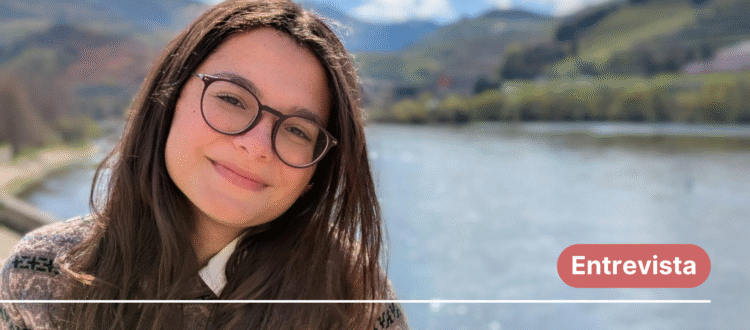À conversa com … #4 Juliana Wady
The 4th episode of À conversa com… focuses on the work of Juliana Wady, winner of the 2nd prize in the Otto Mayer-Serra 2024.
À conversa com… presents a series of written interviews that highlight national or international awards given to CESEM researchers.
Question (Q): You were honoured in the Otto Mayer-Serra 2024, a competition which aims to reward the best unpublished essays on Iberian and Latin American music. What does this award mean to you?
Answer (A): I was thrilled to be recognised! More than the award itself, what was deeply meaningful to me was realising that my research could have a positive impact on the field of Ibero-American musicological studies. This has special weight not only because I have been dedicated to these connections for a long time, but also because this theme dialogues with my trajectory, both academic and personal, marked by the experience between Portugal and Brazil. Receiving an award in this context is therefore even more gratifying and, above all, encouraging.
Q: The award-winning work focuses on Portuguese music in the collection of Mário de Andrade, an essential name in Brazilian musicology. During your master’s degree, you presented an analysis of As Cirandas by Heitor Villa-Lobos, a Brazilian composer and conductor. Do you consider that your main interests when it comes to thinking about music are invariably related to the links between Brazil, where you were born, and Portugal, where you study and live?
A: Since I moved to Portugal in 2016 to study historical musicology in Évora, there has been a spontaneous interest on my part in relations between Brazil and Portugal. Initially, this interest was not exactly musicological, but rather the result of an identity conflict that I was beginning to experience and reflect on: what it meant to ‘be’ Brazilian and/or ‘be’ Portuguese, or even to be an immigrant in these conditions. Naturally, this concern became intertwined with my main object of study: music. From then on, this search for Portuguese-Brazilian musical connections became a kind of ‘mission’. I saw a series of musical relationships between Brazil and Portugal that aroused my curiosity and, as I delved into musicology, I realised more clearly that this would be my path. After all, it seemed to me that studying the musical and musicological links between Brazil and Portugal was, in a way, also studying my own identity as a Portuguese-Brazilian.
Q: Tell us about your relationship with CESEM, where you currently work as an integrated researcher without a PhD.
A: My first contact with CESEM was through professors Filipe Mesquita and Vanda de Sá, from the University of Évora, to whom I am deeply grateful for their encouragement and guidance since I was an undergraduate. They were the ones who introduced me to the possibility of pursuing a master’s degree in Musical Sciences at NOVA FCSH, and it was precisely with this transition that my connection with CESEM grew significantly, culminating in my PhD. Currently, as well as being a scholarship holder for CESEM’s strategic project, I consider that I maintain a very active relationship with the Centre, being involved in various fronts and contexts.
Q: In what way is the scholarship important for the continuity of your work on the ‘Thematic History of Music in Portugal and Brazil’ project?
A: Although ambitious, a thematic history of music in Portugal and Brazil seems to me to be deeply connected to my career on various levels. It is therefore with great enthusiasm and a sense of responsibility that I hope my work during my PhD can make a significant contribution to the construction of this grand narrative. However, as part of the weight of a project of this size, I believe that taking part also requires us to take a critical and up-to-date look, especially in the light of contemporary discussions around decolonialism. Historical narratives today, including in musicology, are being re-signified based on this new framework, and I think it is fundamental that this awareness permeates the way we approach and reconstitute Luso-Brazilian musical histories.
Q: Is there any future project that you can share with us?
A: At the moment, as far as my academic life is concerned, I am dedicated to the final stretch of my doctoral thesis. On the one hand, I have been trying to develop the last aspects of the research and, on the other, to accept that research is an ongoing process and that the doctorate represents a stage in this journey. This means recognising and leaving gaps that can be revisited with new questions and approaches, which I would like to pursue as soon as possible. In addition, despite the challenging scenario we are going through in science and musicology, I still want to continue contributing to strengthening Luso-Brazilian musical relations, which remain at the heart of my academic and personal interests.
We will be following Juliana Wady’s journey closely. In the meantime, there will be other À conversa com…

